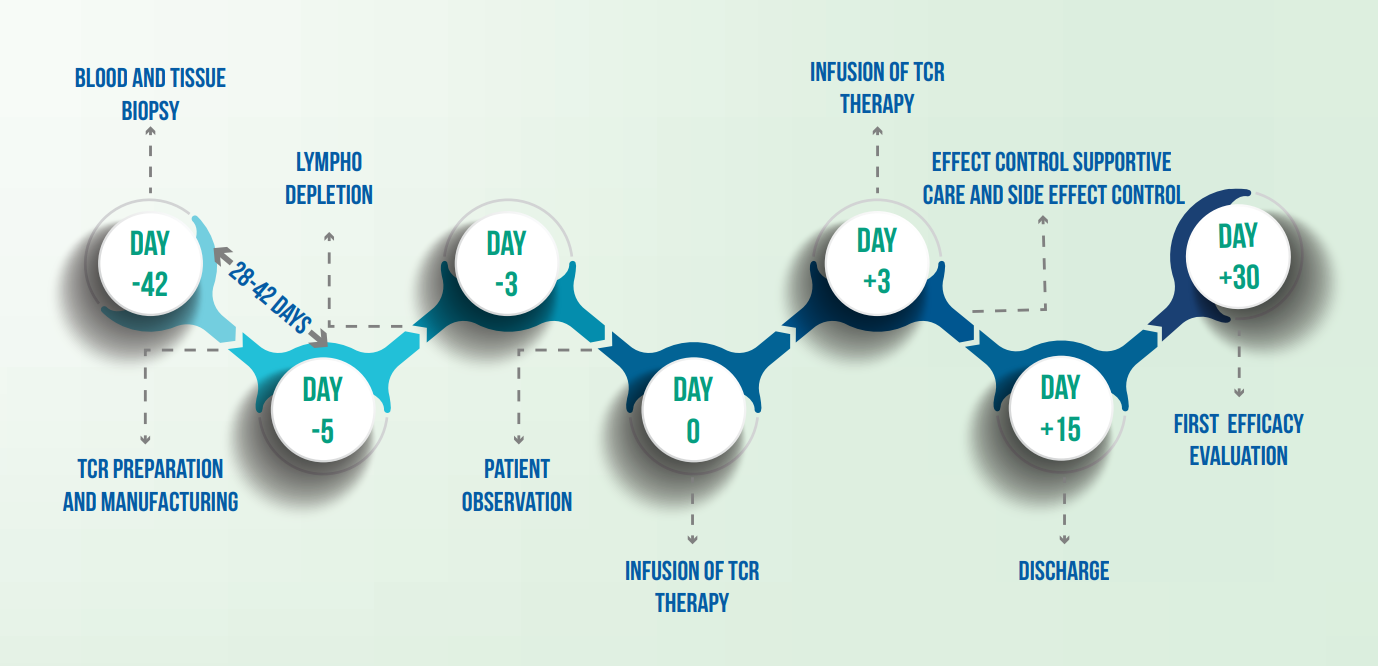
Targeted Approach: TCRs can be engineered to target specific cancer antigens, providing a highly focused treatment.
Potential for High Efficacy: By directing T-cells to attack cancer cells with specific antigens, TCR Therapy can lead to significant tumor reduction.
Adaptability: TCRs can be designed to target a wide range of cancer antigens, making the therapy applicable to various cancers.
| Therapy | Condition or Diseases | Targeted Mutations |
|---|---|---|
| KRAS Therapy | All types of cancer with KRAS mutations | G12D, G12V, G12C,G12R,G13D,G12A,G12S |
| P53 TCR THERAPY | All types of cancer with p53 mutations | R175h, R248q, R273h, G245, R249, R282, R172 |
| HRAS TCR THERAPY | All types of cancer with HRAS mutations | G12V, Q61L,G12S,GL3 |
| GNAS TCR THERAPY | pancreatic cancer and other solid tumors with mutated gnas | G201r, R201c |
The infusion process is typically performed on an outpatient basis, with close monitoring for potential side effects.
Regular follow-up visits are necessary to monitor for side effects and assess the effectiveness of the treatment.
Patients may experience side effects such as fatigue, fever, and immune-related reactions.
TCR therapy has shown remarkable effectiveness in targeting various cancer types, including blood, lung, breast, prostate, colon, bone, skin, kidney, ovarian and cervical cancer cells while ignoring healthy cells.
Source: Cancer Therapy With TCR-Engineered T Cells: Current Strategies, Challenges, and Prospects - PMC
TCR therapy is for cancer patients that haven’t responded or their cancer has resurfaced to treatments like chemotherapy, radiation, or surgery. A thorough evaluation by a medical team is essential to determine if TCR therapy is the right option for the patient.
Alternative options may include:
Thane, Khar, Kerala
contact@sunactcancer.com
Phone : +9186553 13412 Toll free : 18002022232